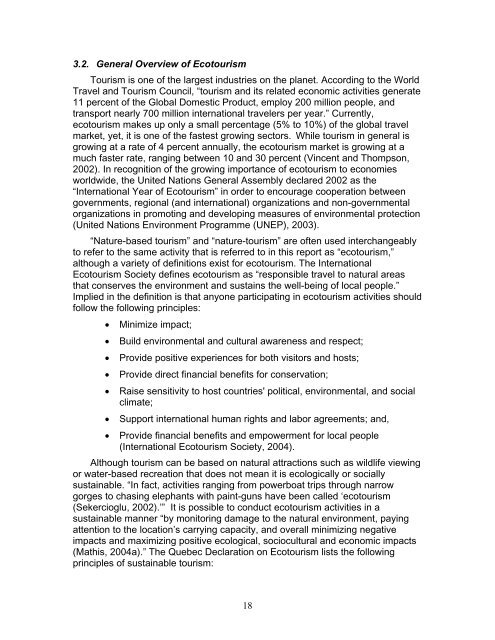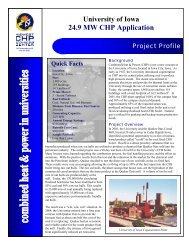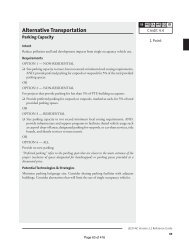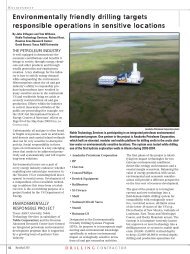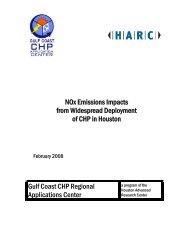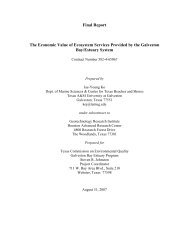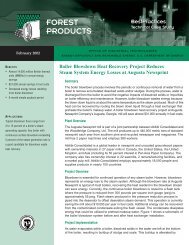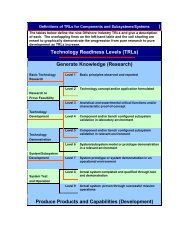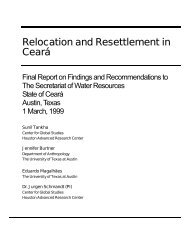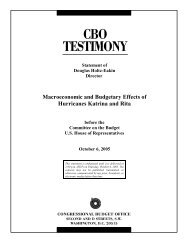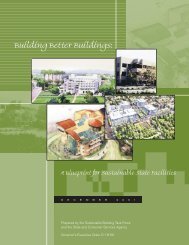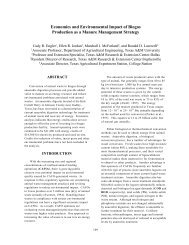The Economic Value of Water and Ecosystem Preservation
The Economic Value of Water and Ecosystem Preservation
The Economic Value of Water and Ecosystem Preservation
Create successful ePaper yourself
Turn your PDF publications into a flip-book with our unique Google optimized e-Paper software.
3.2. General Overview <strong>of</strong> Ecotourism<br />
Tourism is one <strong>of</strong> the largest industries on the planet. According to the World<br />
Travel <strong>and</strong> Tourism Council, “tourism <strong>and</strong> its related economic activities generate<br />
11 percent <strong>of</strong> the Global Domestic Product, employ 200 million people, <strong>and</strong><br />
transport nearly 700 million international travelers per year.” Currently,<br />
ecotourism makes up only a small percentage (5% to 10%) <strong>of</strong> the global travel<br />
market, yet, it is one <strong>of</strong> the fastest growing sectors. While tourism in general is<br />
growing at a rate <strong>of</strong> 4 percent annually, the ecotourism market is growing at a<br />
much faster rate, ranging between 10 <strong>and</strong> 30 percent (Vincent <strong>and</strong> Thompson,<br />
2002). In recognition <strong>of</strong> the growing importance <strong>of</strong> ecotourism to economies<br />
worldwide, the United Nations General Assembly declared 2002 as the<br />
“International Year <strong>of</strong> Ecotourism” in order to encourage cooperation between<br />
governments, regional (<strong>and</strong> international) organizations <strong>and</strong> non-governmental<br />
organizations in promoting <strong>and</strong> developing measures <strong>of</strong> environmental protection<br />
(United Nations Environment Programme (UNEP), 2003).<br />
“Nature-based tourism” <strong>and</strong> “nature-tourism” are <strong>of</strong>ten used interchangeably<br />
to refer to the same activity that is referred to in this report as “ecotourism,”<br />
although a variety <strong>of</strong> definitions exist for ecotourism. <strong>The</strong> International<br />
Ecotourism Society defines ecotourism as “responsible travel to natural areas<br />
that conserves the environment <strong>and</strong> sustains the well-being <strong>of</strong> local people.”<br />
Implied in the definition is that anyone participating in ecotourism activities should<br />
follow the following principles:<br />
• Minimize impact;<br />
• Build environmental <strong>and</strong> cultural awareness <strong>and</strong> respect;<br />
• Provide positive experiences for both visitors <strong>and</strong> hosts;<br />
• Provide direct financial benefits for conservation;<br />
• Raise sensitivity to host countries' political, environmental, <strong>and</strong> social<br />
climate;<br />
• Support international human rights <strong>and</strong> labor agreements; <strong>and</strong>,<br />
• Provide financial benefits <strong>and</strong> empowerment for local people<br />
(International Ecotourism Society, 2004).<br />
Although tourism can be based on natural attractions such as wildlife viewing<br />
or water-based recreation that does not mean it is ecologically or socially<br />
sustainable. “In fact, activities ranging from powerboat trips through narrow<br />
gorges to chasing elephants with paint-guns have been called ‘ecotourism<br />
(Sekercioglu, 2002).’” It is possible to conduct ecotourism activities in a<br />
sustainable manner “by monitoring damage to the natural environment, paying<br />
attention to the location’s carrying capacity, <strong>and</strong> overall minimizing negative<br />
impacts <strong>and</strong> maximizing positive ecological, sociocultural <strong>and</strong> economic impacts<br />
(Mathis, 2004a).” <strong>The</strong> Quebec Declaration on Ecotourism lists the following<br />
principles <strong>of</strong> sustainable tourism:<br />
18


